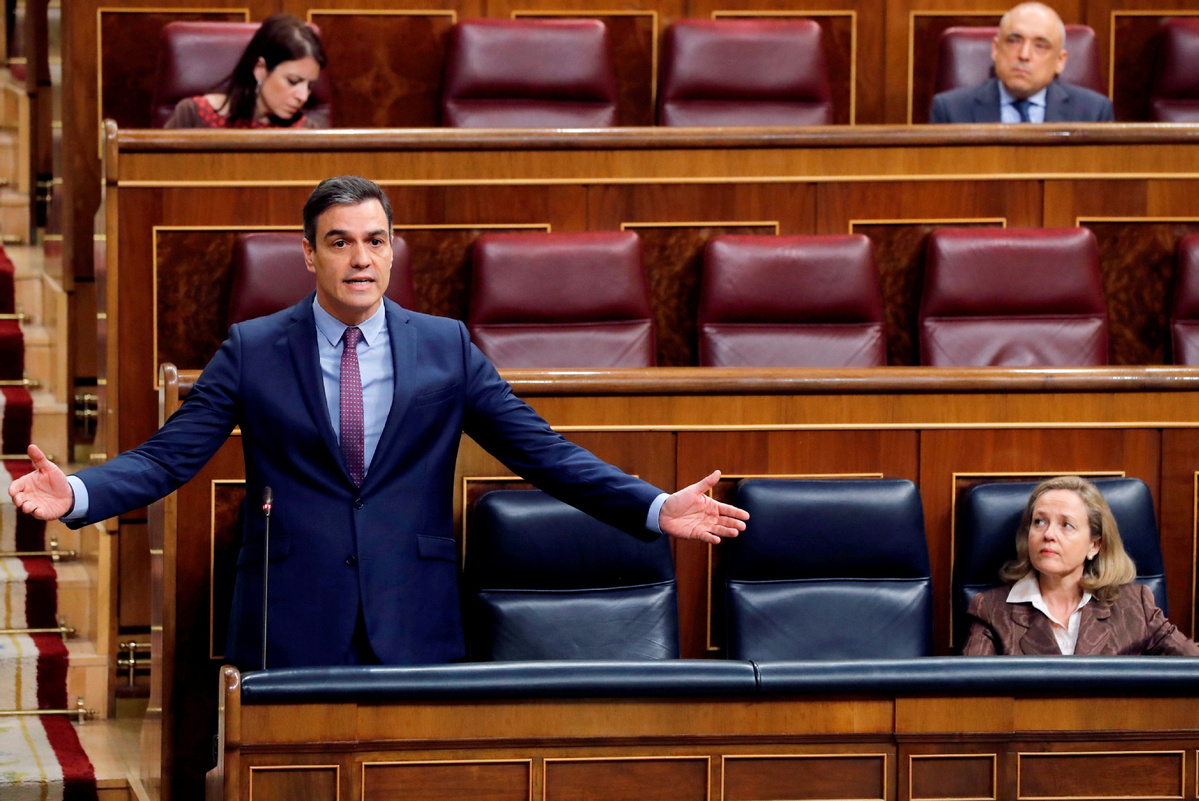
Spanish Prime Minister Pedro Sanchez answers questions as he keeps social distance from Deputy Prime Minister and Economic Affairs Minister Nadia Calvino during a control session on coronavirus disease at the Parliament in Madrid, Spain, April 15, 2020. (Photo: Agencies)
MADRID - The Spanish Parliament on Wednesday agreed to extend the State of Alarm that has been in effect in the country since March 15 up until May 9.
The measure was approved with 269 votes in favor in the 350-seat Congress of Deputies.
This is the third time the Spanish government of Pedro Sanchez has sought to extend the State of Alarm, which was due to expire at midnight on April 25.
This new State of Alarm will allow children aged under 14 to leave their homes in the presence of an adult to take some exercise outside. It also gives the health ministry greater powers to "modify, extend or limit measures" over activities which can be carried out in different parts of Spain.
"We have seen a positive tendency in Spain for several days now, which shows we have doubled the curve of infection; we have got past the critical moment and the health system has been able to resist, while the number of people who have recovered gives grounds for optimism," said Sanchez in his address to the parliament.
"We can start to think about a de-escalation scenario, but we have to be careful... We are not going to run any risks of returning to the painful situation that it has taken us so long to turn around," he added.
Wednesday saw 435 new coronavirus deaths in Spain, taking the total number of victims to 21,717. Meanwhile, 4,211 new cases were also confirmed, bringing the total number of infections to 208,389.
A State of Alarm is the first of three emergency levels a Spanish government can apply under exceptional circumstances. It grants the government special powers to limit the movement of citizens, to control the means of production and use private assets if needed and also to use the military to carry out essential logistical and supply jobs.


